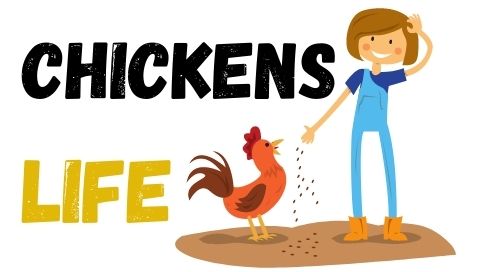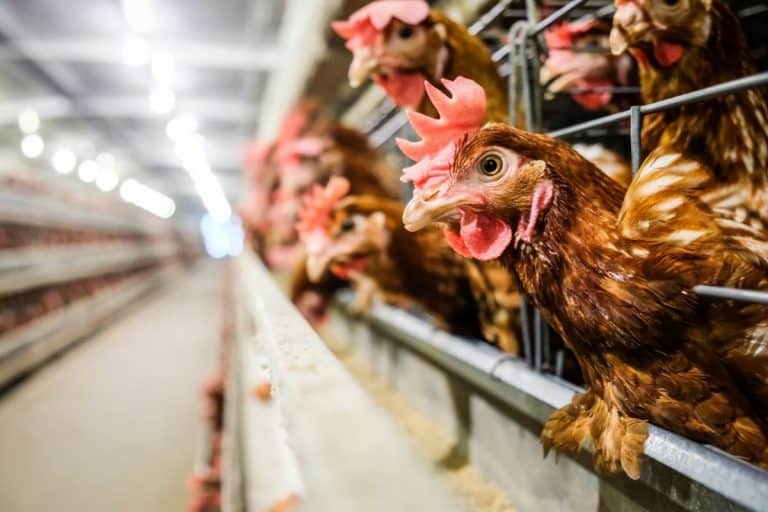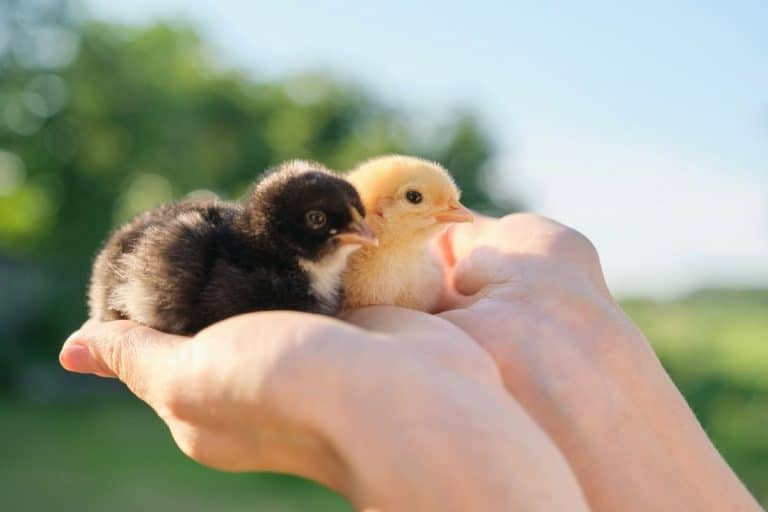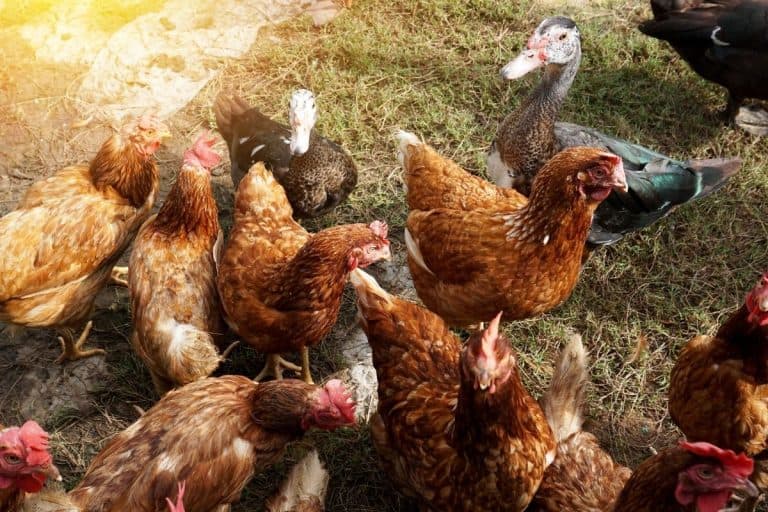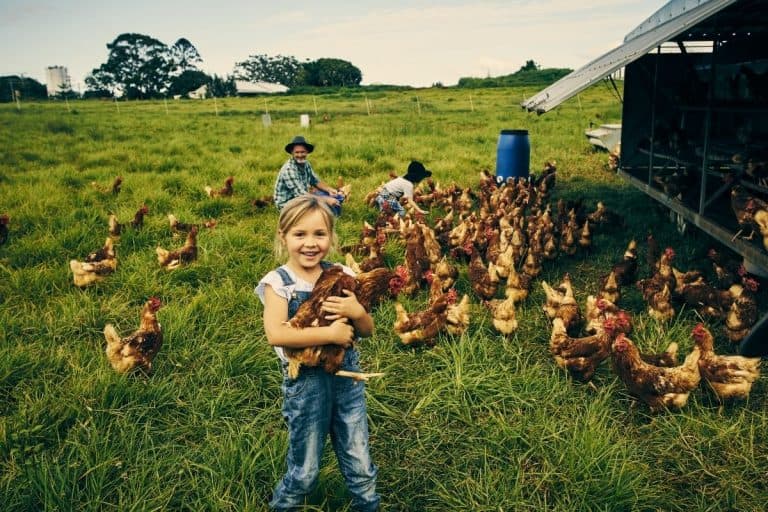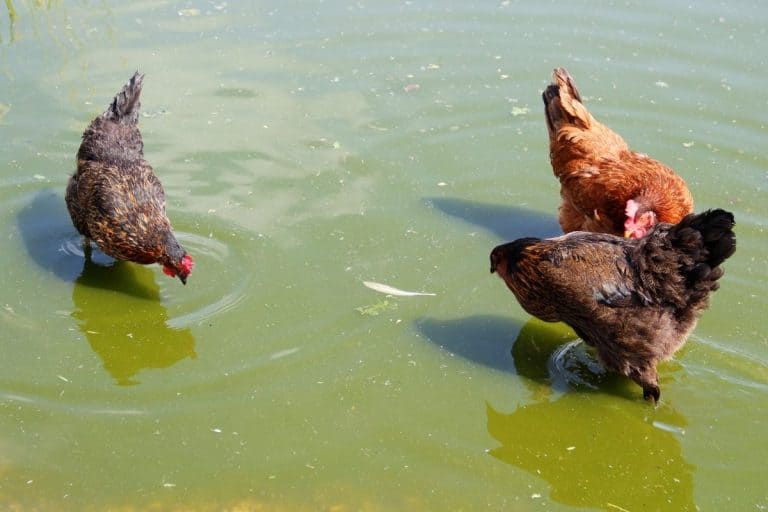Why Does My Chicken’s Egg Have No Shell?
Many new chicken raisers become concerned when one of their hens produces a soft-shelled or shell-less egg. If this happens to you, try not to panic! These things do happen and there certainly are explanations for them, usually reversible and other times not so much.
A chicken will lay a shell-less egg because they are usually too young or old, their diet is lacking essential calcium and protein or their overall health condition is poor.
These squishy and weird bouncy ball like eggs can be surprising. I know that I wasn’t sure what to do when my best hen produced a soft egg for the first time. I found that understanding the reasons why a shell-less egg is laid is one of the first steps in figuring out how to fix the issue. This article aims to explain why these eggs happen and how you can help.
But before you dive into this topic, did you know I've got a page packed with my go-to chicken stuff? From the best feed to handy tools, it's all there. Don't you want the best for your flock? Check it out right here.
Why Are My Hens Laying Soft-Shelled Or Shell-Less Eggs?
There are several reasons why a chicken may lay a soft-shelled or shell-less egg. Oftentimes, it has to do with the age of the hen, their diet and the environment they live in.

Nature and all of our tampering with chicken breeds, so we can have the optimum egg producers can have a negative effect on their eggs as well.
- A shell-less egg is one that has no shell and only consists of the inner membrane holding in the yolk and the whites.
- A soft-shelled egg is one that had some calcium formation but was not completed, resulting in a soft shell.
Age
It is not uncommon for very young or very old hens to lay a shell-less or soft-shelled egg. When a new hen starts laying her first eggs, they can often be misshapen, soft or altogether shell-less. This is why it is important that you feed your hens’ layer feed to give them a boost of calcium and protein for their new egg production.
Related: Can you give eggshells to your chickens?
Old hens will also lay soft-shelled eggs, especially when they are high quantity egg producers. Hens that are bred with the sole purpose of laying over 320 eggs a year are going to have higher incidences of shell-less eggs. This is often because they lay one egg that looks good and healthy, then produce another less than 12 hours later that has little to no shell around it.
Because the process of ‘shelling’ the egg takes about 24 hours, an egg that is laid less than 12 hours after a perfect one can’t possibly have a full shell formed.
I suppose maybe we took our selective breeding a bit too far and are asking a little much out of our feathered friends.
Diet!
A chicken’s diet is key to them having a healthy and well-formed eggshell. When they don’t meet the physical requirements necessary to produce a hard and beautiful egg you will start to notice a drop in your shell quality.
If a chicken isn’t supplied with a sufficient amount of shell-forming material, it will become obvious that the shells suffer from it. They require a high amount of calcium in order to maintain healthy and strong eggshells.
Many chicken raisers will feed the flock calcium that they get from eating a soluble grit, typically derived from oyster shells. This can be supplied on its own or given as a ‘mixed grit’ supplementally.
Chickens can also obtain a healthy amount of calcium from their regular layer feed diet.
Protein is another part of a chicken’s diet that they need in order to lay healthy and strong eggs. Vitamin D is important for the process of calcium and phosphorus in order to produce hard eggshells. Thankfully, most commercial diets include an appropriate amount of calcium and protein for the average chicken to produce nice eggs.
Hot Weather
Seems weird, I know. But poor eggshell quality can be linked to hot weather. It is suspected that because chickens eat less in the warmer months, that you can see less egg production or just poorer eggshell quality in general.
I suppose this makes sense, them eating less and having less protein and calcium would lead to them laying less and having softer eggshells.
Stress: Molting and Predators
Stress can affect all sorts of things with chickens and their egg production. Predators lurking around the coop and keeping the hens from sleeping well at night can interrupt the process of producing the egg (hens form the eggs while they sleep). Sometimes if they become spooked in the middle of the night, they will lay a shell-less egg the next day.
The physical stress from molting interrupts not only the number of eggs laid but it also can affect the quality of the eggshell.
Obesity
Having a fat chicken can affect her egg quality as well as her overall health. Chickens can become overweight quickly and will carry fat internally which can cause prolapse as well as decreased egg production or shell-less eggs.
Feeding your bird too much extra and unnecessary food and scraps can cause them to become obese or overweight, which we want to avoid. In the very cold winter months it is ok to throw a little extra corn or scratch down for them, but otherwise, feeding them a balanced layer feed and supplementing with greens and other healthy snacks is much safer and better for your birds.
Illness or Injury
If a hen is not feeling well, then she usually isn’t doing normal chicken things like eating or drinking appropriately. Because a hen’s diet is so crucial in the development of her eggs then any kind of interruption in their eating habits will result in poor egg quality.
Wait, I have some recommendations for you!
Before you go any further, I want you to take a look at some of the recommendations I've handpicked for you. I think these are essential items you should have for your chickens flock. You can check them out and buy them directly from Amazon.
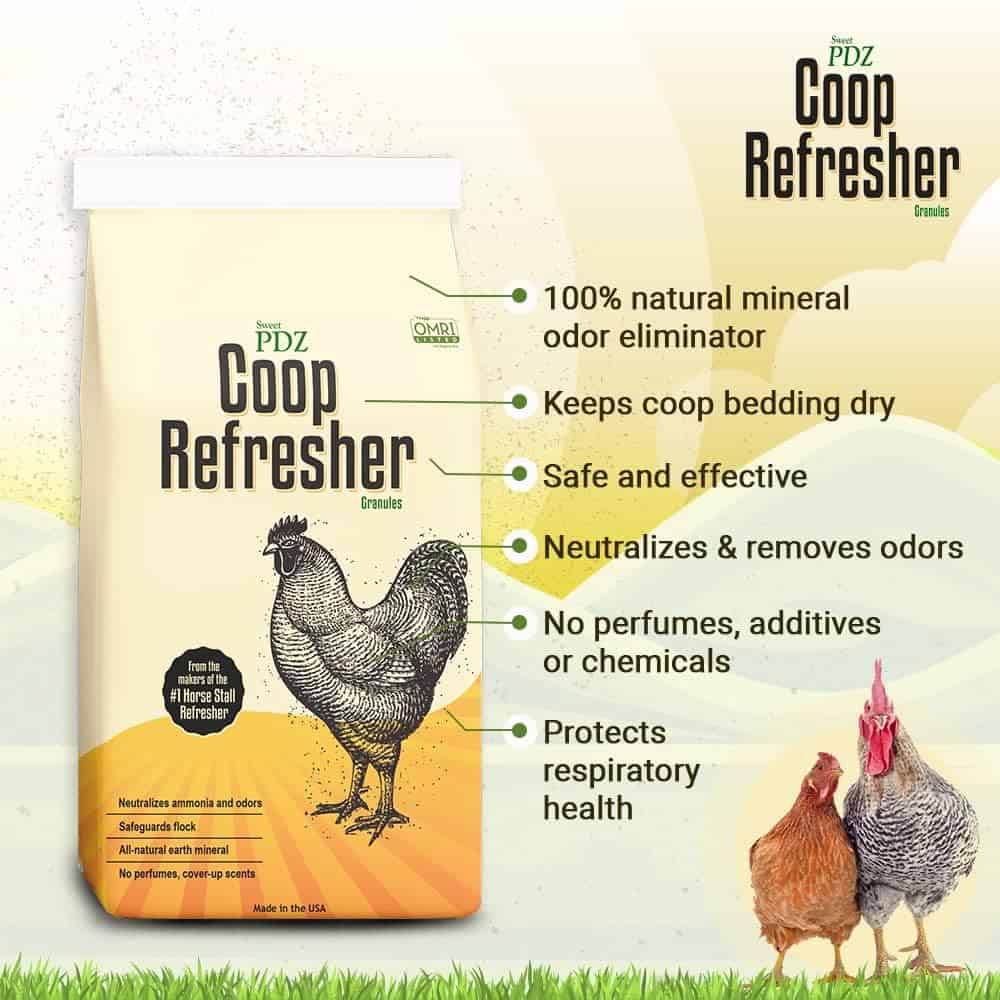 | 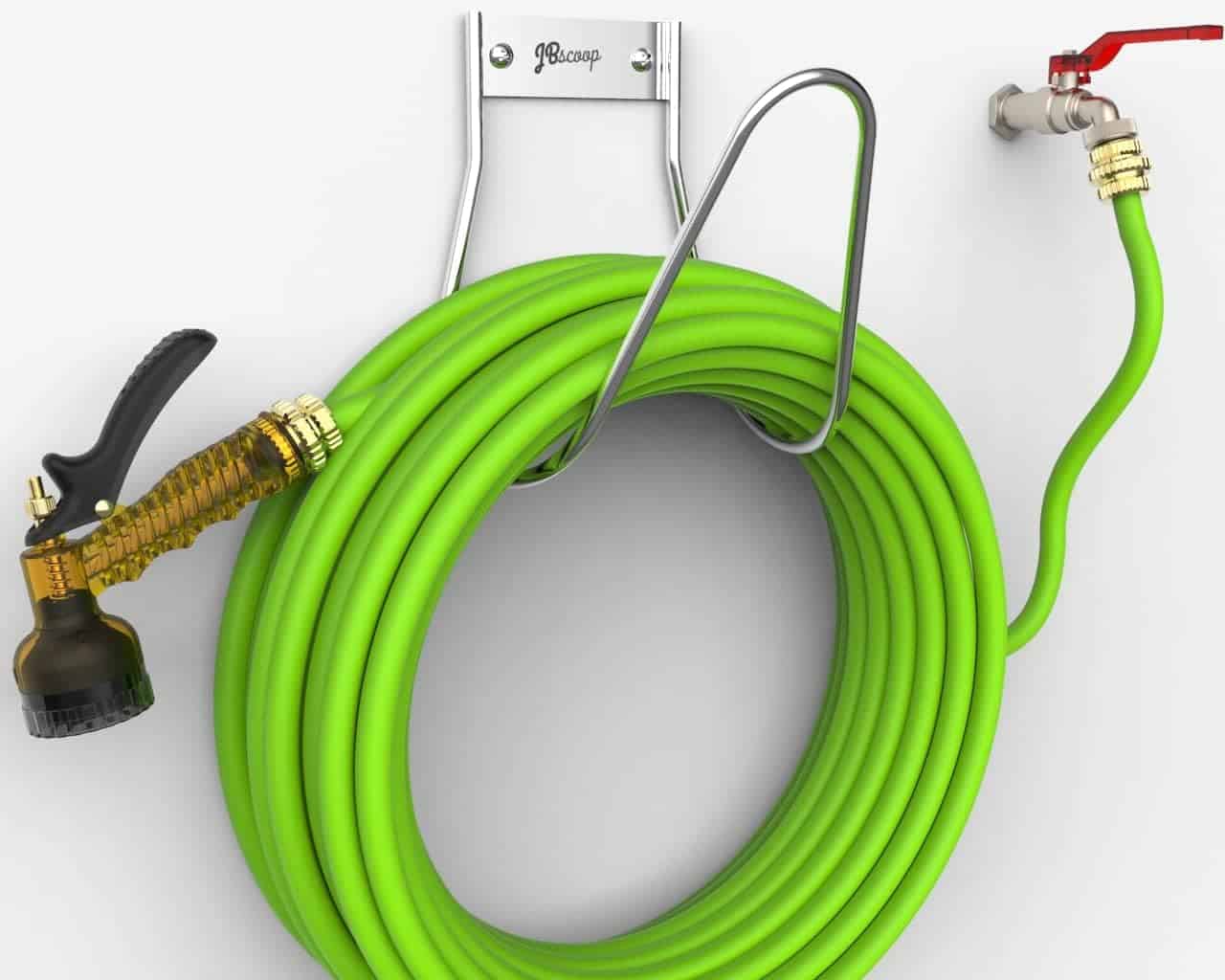 | 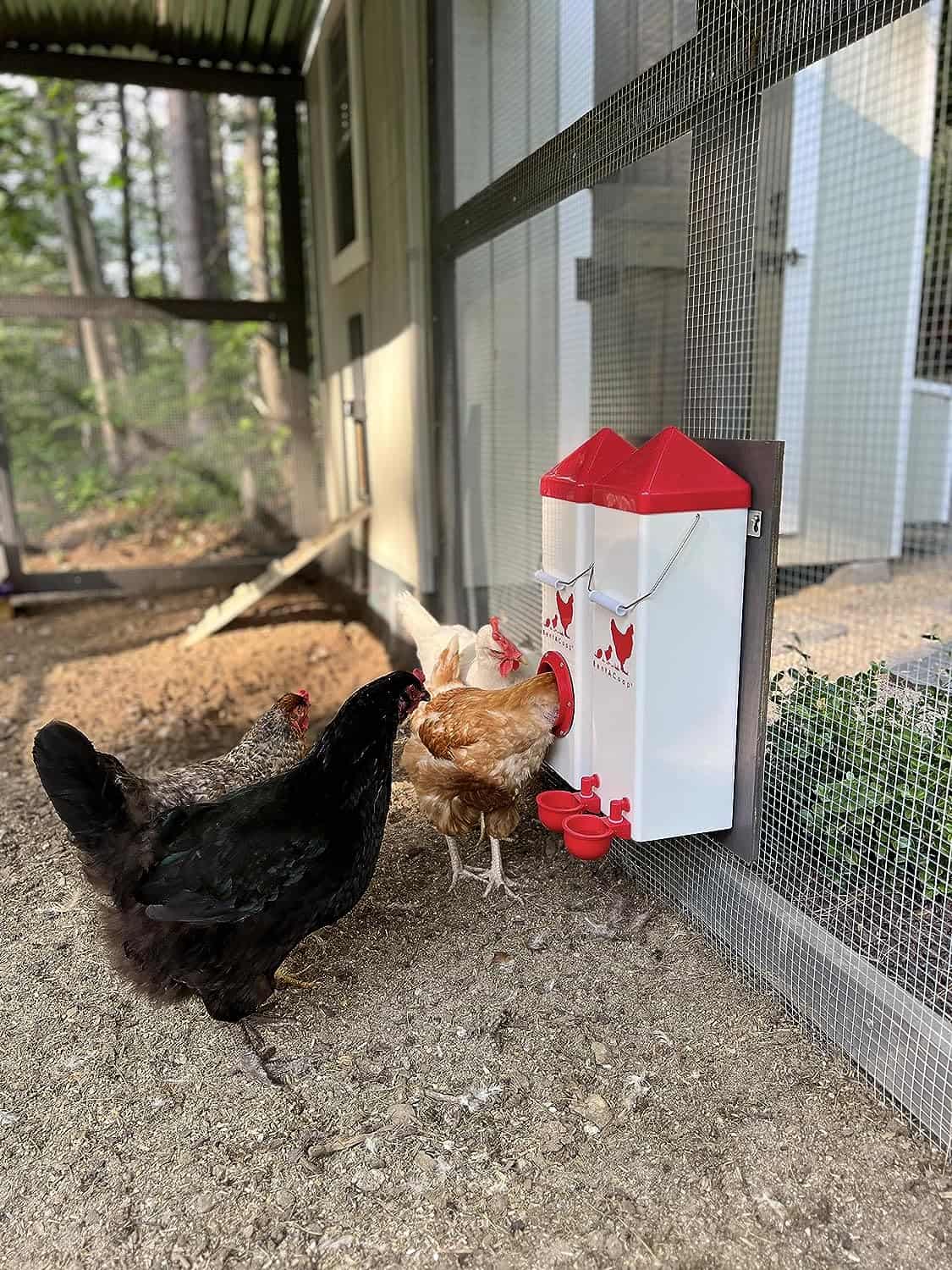 | 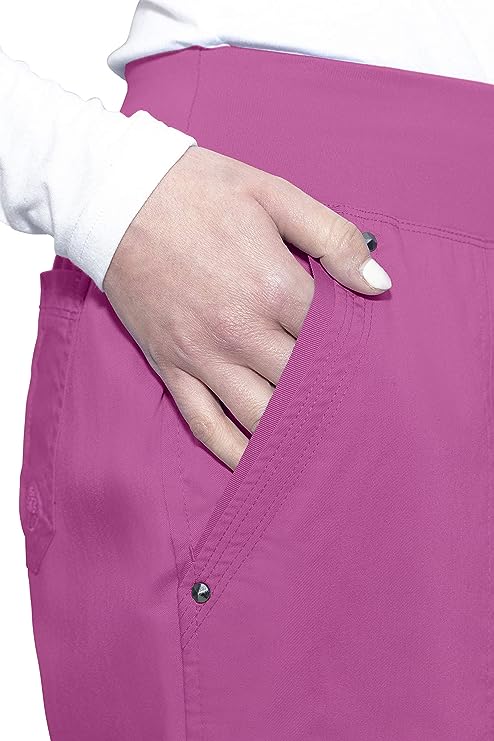 |
| Essential accessory for your coop | No more tripping over hoses! | Predator protection made easy | Comfort + style is possible |
What Is A Good Source Of Calcium For Chickens?
There are several options online and at feed stores for calcium supplements. I’ve chosen a few of my favorite and higher-rated ones so that you don’t have to! Remember, your calcium is only a supplement and is meant to be given in conjunction with regular laying feed.
#1 Oyster Shell Pebbled, Chicken Calcium Supplement
This supplement provides a 24-hour release of calcium, ensuring that once a day your hen should produce a healthy egg with a strong and protective shell. This product has great reviews, plus I can say from experience that my hens love this tasty little addition to their daily regimen.
#2 Purina Oyster Shell Poultry Supplement
This Purina-made supplement is an excellent source of calcium, guaranteed to improve the integrity of your chicken’s eggshells. This company is reputable and also has excellent pellets and crumbles for chooks of all life stages.
#3 Manna Pro Chicken Feed Supplement/Omega Egg Maker
Manna Pro is another brand that has a large footprint in the chicken feed and supplemental market. This Omega Egg Maker supplement provides your hens with an excellent source of protein and calcium, while also including omega-3s and a few other vitamins and minerals.
What Health Conditions Can Cause Hens To Lay Shell-Less Eggs?
If you have ruled out the above as being a reason for your hen laying soft-shelled or shell-less eggs then you may need to reach out to your veterinarian. There can be some health conditions that cause issues with shell formation.
Inflammation of the oviduct and calcium absorption problems can be explanations for your hen not laying healthy eggs. Unfortunately, there isn’t much to be done to correct the oviduct inflammation or the calcium absorption issue. This hen will just not be one that lays viable eggs.
What Can I Do If My Hen Is Laying Soft-Shelled Or Shell-Less Eggs?
Switching food, providing more calcium grit and keeping them as stress-free as possible is some of the first things to do when your hen is producing soft-shelled eggs. Starting there is usually going to fix the problem, and if there is no improvement after making these adjustments to their diet and lifestyle then reaching out to the vet is next on your list.
Related: How Many Hours Do Chickens Sleep? (Times, habits and tips)
Soft-Shelled Eggs – Sometimes They Happen
When your hen lays a soft-shelled or shell-less egg, it isn’t always time to worry. It can be normal, actually. Especially when they are new to laying or are nearing the end of their egg-laying days. Just know that making a few tweaks to their diet and providing extra calcium will usually fix this issue.
Understanding that soft-shelled eggs happen every once in a while will make your chicken raising journey much less worrisome.

